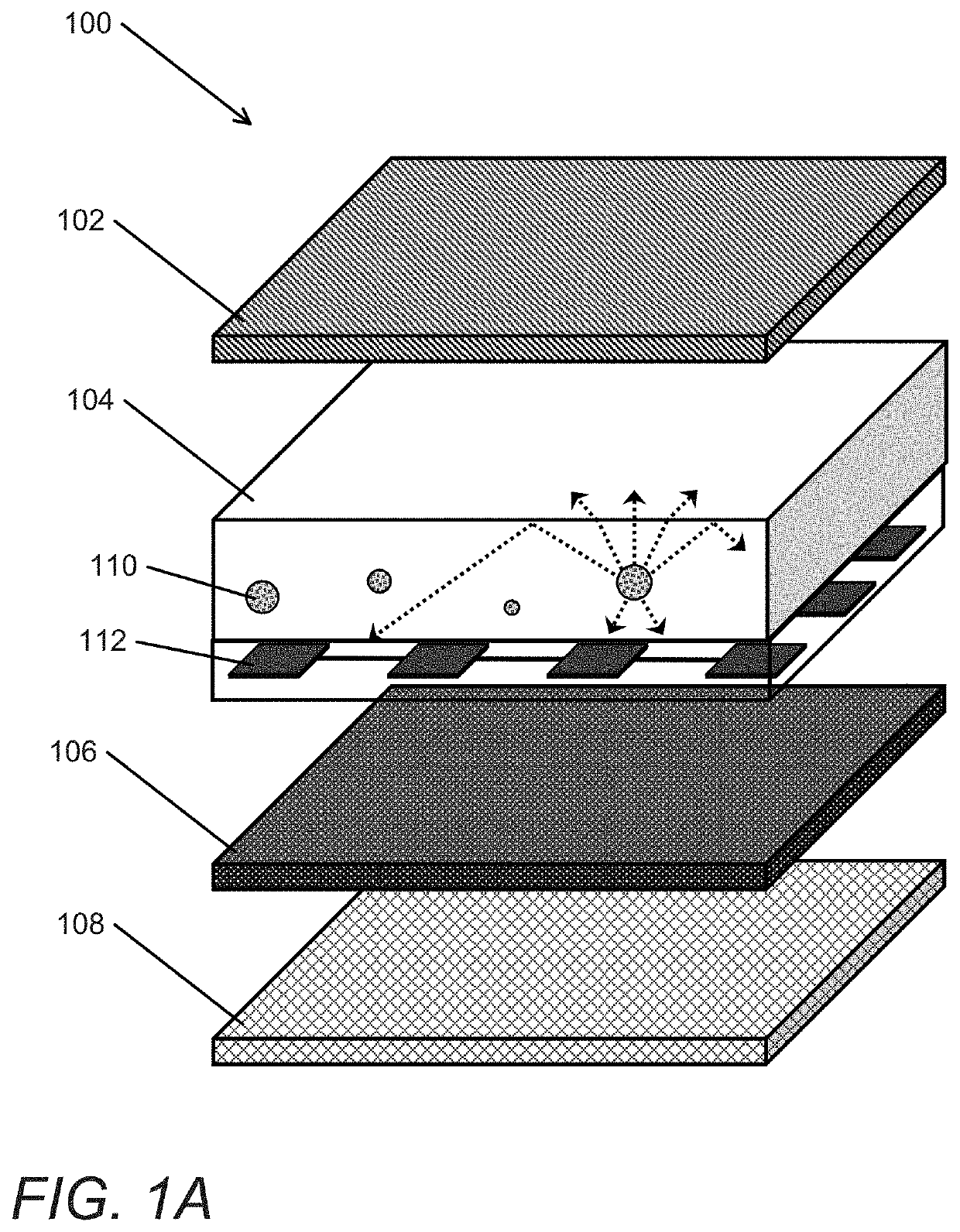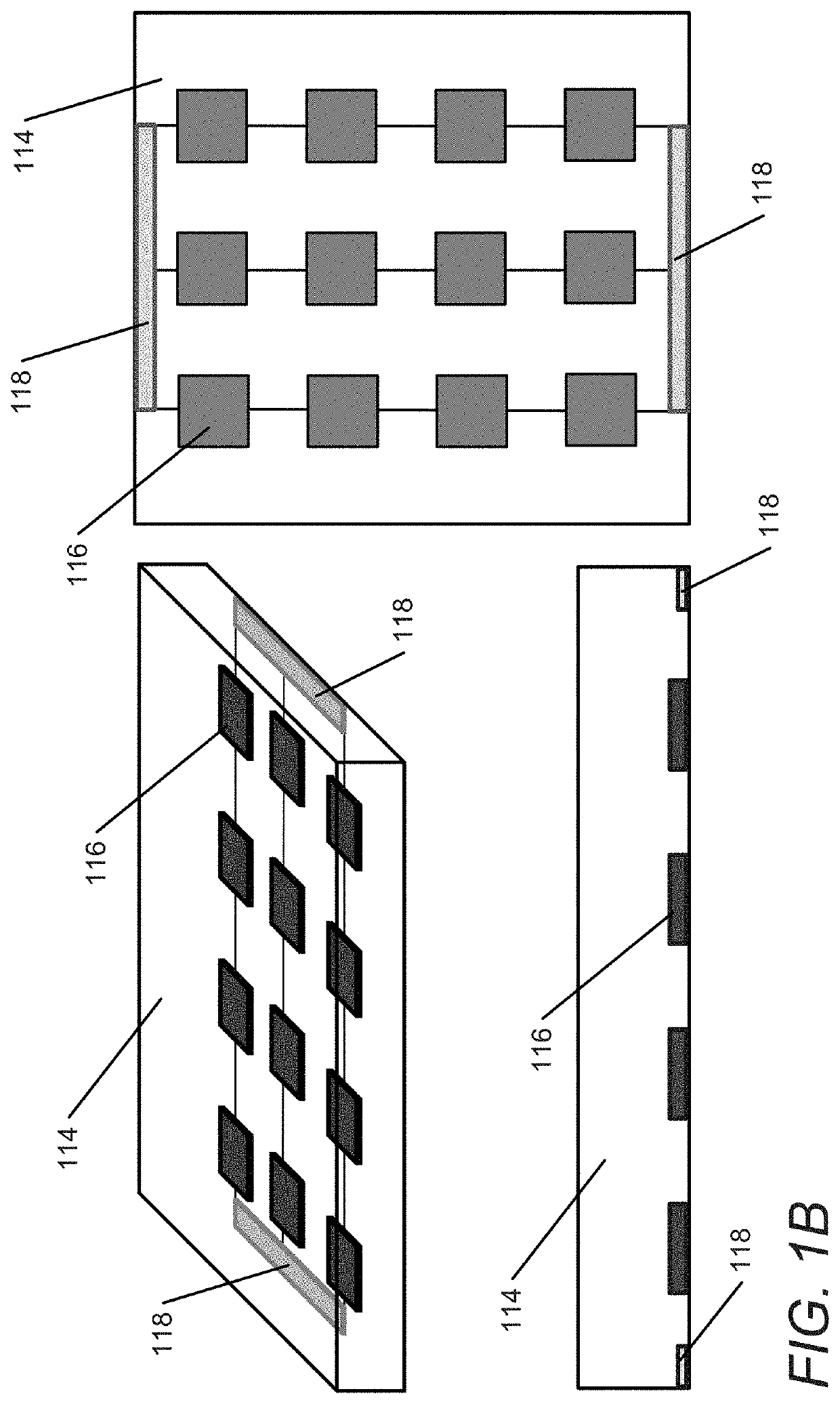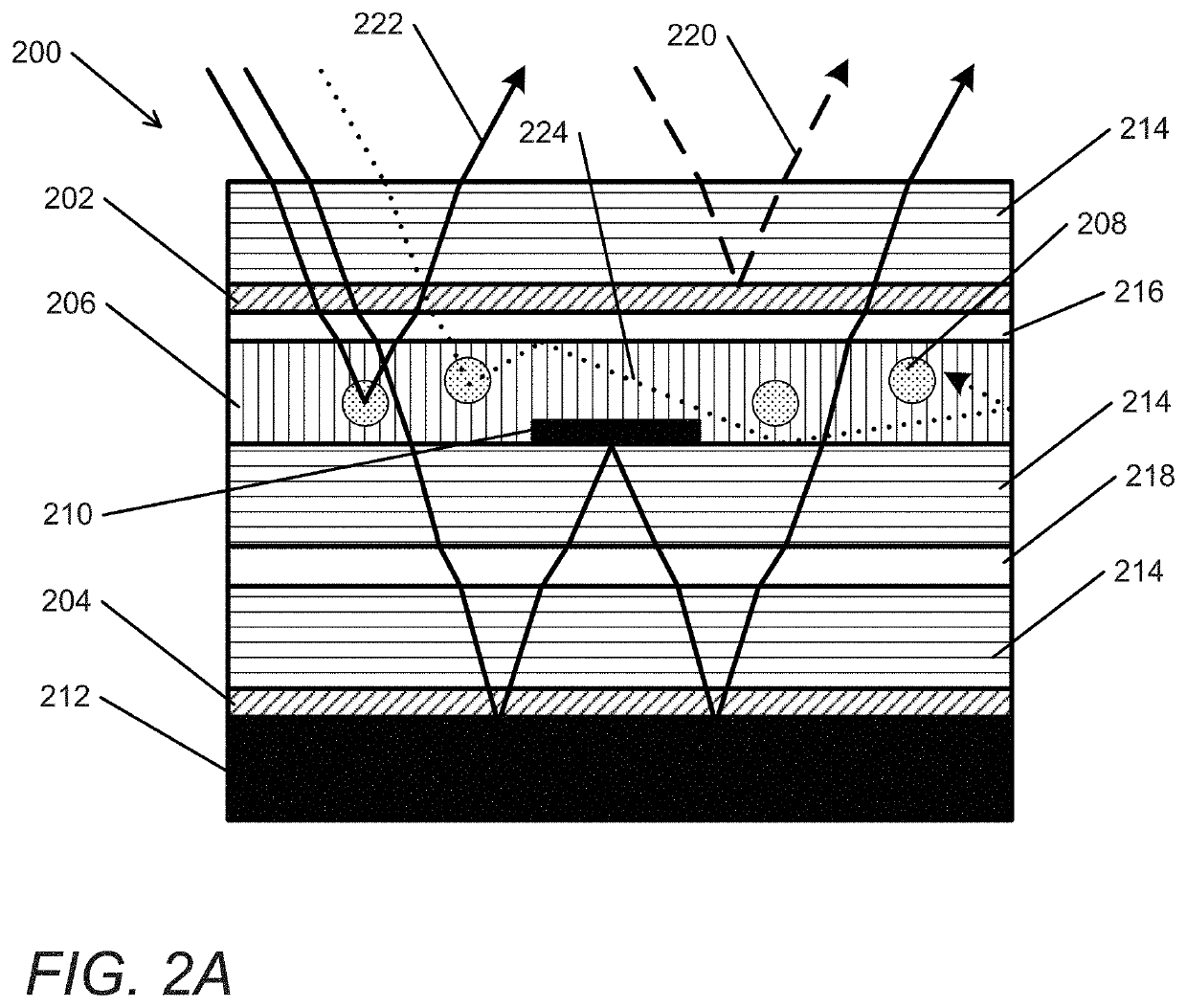Luminescent solar concentrators and related methods of manufacturing
a technology of solar concentrators and solar energy, applied in the direction of basic electric elements, electrical equipment, semiconductor devices, etc., can solve the problems of limiting the dissemination of solar power into the global energy market, reducing the economic viability of pv technology, and reducing the use of gathered ligh
- Summary
- Abstract
- Description
- Claims
- Application Information
AI Technical Summary
Benefits of technology
Problems solved by technology
Method used
Image
Examples
Embodiment Construction
[0043]Luminescent solar concentrators offer a unique solution to capture sunlight and to reduce the overall Levelized Cost of Electricity. LSC module efficiency can suffer from two key loss mechanisms. First, embedded luminophores can require near-unity photoluminescence quantum yield (“PLQY”) in order to achieve desired optical efficiencies. To prevent further luminophore parasitic absorption, separation between absorbed and emitted photon energies (i.e., the Stokes shift) should be maximized. Historically, luminophores have not been able to maintain high enough PLQY and large Stokes shifts. Thus, many incident photons are usually parasitically absorbed by the luminophores in traditional devices. Second, the index of refraction contrast between the optical waveguide and the surrounding medium can limit complete photon trapping. Polymer waveguides experience significant escape cone losses for photons radiated at angles that lie between normal incidence and the critical angle of the ...
PUM
| Property | Measurement | Unit |
|---|---|---|
| radii | aaaaa | aaaaa |
| radii | aaaaa | aaaaa |
| thicknesses | aaaaa | aaaaa |
Abstract
Description
Claims
Application Information
 Login to View More
Login to View More - R&D
- Intellectual Property
- Life Sciences
- Materials
- Tech Scout
- Unparalleled Data Quality
- Higher Quality Content
- 60% Fewer Hallucinations
Browse by: Latest US Patents, China's latest patents, Technical Efficacy Thesaurus, Application Domain, Technology Topic, Popular Technical Reports.
© 2025 PatSnap. All rights reserved.Legal|Privacy policy|Modern Slavery Act Transparency Statement|Sitemap|About US| Contact US: help@patsnap.com



